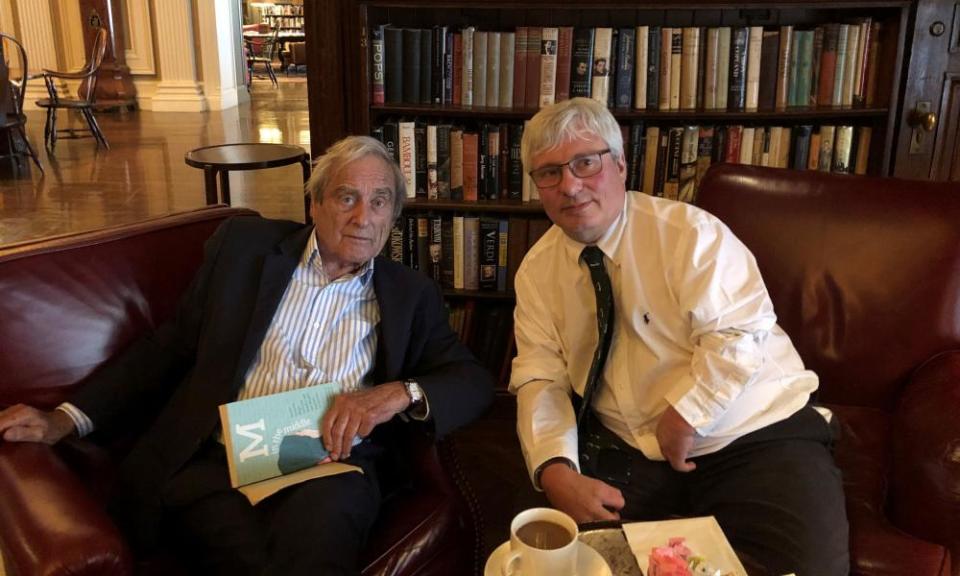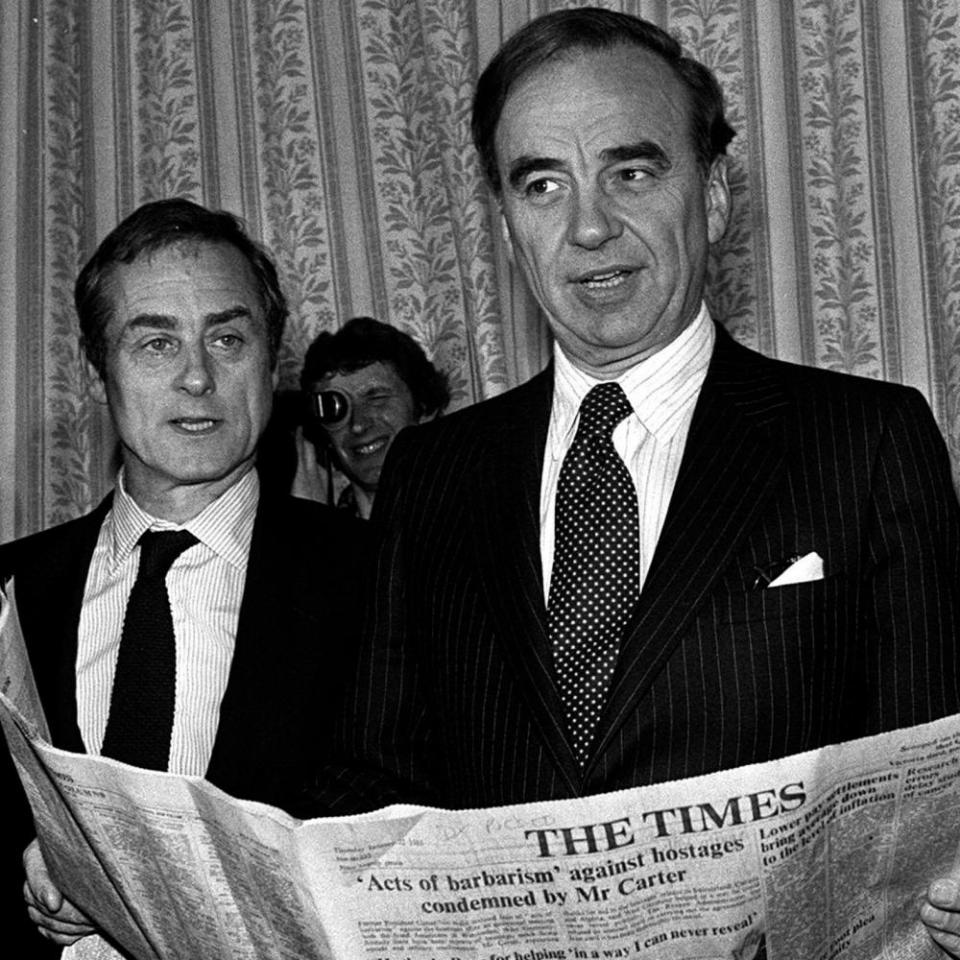The Harold Evans I remember was a great craftsman, a crusader… and a rival without peer

Harold Evans must be the most formidable rival the Observer has ever had. I can vouch for that, having been editor or deputy editor for 12 of the 14 years in which he published a stream of highly publicised investigative stories and campaigns in the Sunday Times.
I remember the day he was appointed in 1967. At the editorial conference, the then editor, David Astor, asked the table: “Does anybody know him?” When I put my hand up, I was asked to describe him. “He’s a crusader,” I said and mentioned his campaigns as editor of the Northern Echo, including the pardon he secured for Timothy Evans, who had been hanged for murders he didn’t commit. Astor looked a bit downcast at this and muttered: “Oh dear! He’ll be wanting to wear our clothes.”
It turned out that Harry had plenty of clothes of his own. We did our best, with a smaller staff and fewer resources, to compete with the torrent of ideas, stories and campaigns that poured out of Gray’s Inn Road between then and 1981, inspired by Harry’s unquenchable energy and enthusiasm. Looking back, it seems a remarkable achievement for the Observer to have survived that period without more damage to its circulation.
When I became editor in 1975, the board asked me if I could get myself on television – “like that chap Evans”. So I did my best, though I was a bit miffed when a director said later: “You’re on TV so much these days, Donald, I wonder how you find time to edit the paper.”

I got to know Harry quite well and we found we had much in common – both of us short men with northern, working-class backgrounds (his family on the railways, mine in coal mining) who had come up through regional papers, both of us with an obsessive interest in the craft of journalism – style, page layouts, typography and so on. We became friends – he even proposed me for membership of the Garrick club.
We looked sufficiently alike to be occasionally mistaken for one other. Once, coming back to London by train from Sheffield, I was stopped in the corridor by Tony Benn, who asked me to join him in his compartment. It soon became clear that he thought I was Harry Evans. When I corrected him and told him who I was, he refused to believe it and we continued talking at cross purposes for much of the journey home.
Although a highly competitive man, Harry was always generous about the Observer, even though it was the opposition. He praised the paper for its quality of writing, its design and its moral purpose, saying that he had learned a great deal from it while he was growing up.
If Harry had a fault, it was a kind of northern boastfulness, though delivered in the gentle manner of, say, Michael Parkinson rather than Geoffrey Boycott. He was so boyishly proud of his achievements he simply couldn’t help it.
His journalistic credo was always: 'Keep digging, the truth is down there somewhere.'
Exposing the thalidomide scandal is the campaign for which he will be chiefly remembered. His journalistic credo was always: “Keep digging, the truth is down there somewhere.” But to reach the truth about thalidomide, or, rather, to be able to publish it, involved a clutch of tangled and thorny legal and ethical issues that took years of patience, cunning and tireless research to unravel.
It also required Harry to sign two cheques to insider informants to discover the “smoking gun” he needed. This dubiously acquired information was put to positive use in destroying the legal defence of the Distillers Company and forcing the climbdown that eventually brought justice and compensation to the victims of the noxious pregnancy drug.
When the Thomson group put the Times and Sunday Times up for sale, and before Rupert Murdoch came on the scene, Harry was involved in a frantic effort to find a congenial partner to buy his Sunday paper. At a party at my house in Islington, I introduced him to Thornton Bradshaw, chief executive of the American oil company, Arco, which had bought the Observer.
The following day, the two men worked out a plan to merge the Sunday Times and the Observer, a plan that was defeated by the Thomson group’s insistence that the Times and its Sunday sister had to be sold together. When the merger plan leaked, the Daily Mirror joked that the US owners “will have to decide between JR Ewing and Bobby Ewing – that is, between Harold Evans and Donald Trelford”.

When Murdoch eventually got both papers, Harry made the biggest mistake of his life in agreeing, over lunch with Rupert at the Savoy Grill, to move to the daily, where he famously came to grief. He admitted to me later, when I saw him in New York, that he should have stayed on the firm ground of the Sunday paper, where his record made him impregnable, rather than straying on to the shifting sands down the road. What persuaded him to make this fatal career move, I believe, was that the train driver’s son simply couldn’t resist the kudos of running the “top people’s paper”.
His losing battle with Murdoch ended with Harry going into exile in the US for the last 38 years of his life. Inevitably, given his amazing energy and talent, he was successful there, but as a writer and publisher of books and magazines and not, sadly, as a newspaper editor. British journalism was all the poorer for his absence, not just for the example he set in how to edit a good newspaper, but for the authority he could have brought to the debates over press freedom and regulation that have had to be fought without him.
• Donald Trelford was editor of the Observer from 1975-93. His new book, Heroes & Villains, a selection of his journalism over 60 years, is due out later this year.


